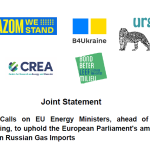As the UNFCCC negotiations wrapped up at the newly finished World Conference Centre in Bonn, there was a feeling of slow and fractional progress towards the climate summit in Paris.
The momentum on climate and energy action is building both internationally and nationally, particularly with the developments like the G7 announcement to decarbonize our global economy in this century and the Norwegian Sovereign Wealth Fund pulling $9 billion from coal companies. With that said, all of the momentum growing outside of the UNFCCC process is failing to filter through and spur on the negotiations. The progress on reducing the text that will form an Agreement at the COP21 in Paris has been comparatively slow given the urgency to act on climate change.
The negotiations on climate finance were no exception to the overall pace of the Bonn inter-sessional, with a series of back-and-forth around how to proceed with an 18-page text on the issue. The task to cut out duplications and streamline the section became confused at certain points, with eventual agreement to give the co-facilitators the mandate to reduce the text. As we left Bonn, the 18 pages fell to 14 while more conceptual discussions on how climate finance could look in the Agreement began to take shape.
CAN Europe asserts the clear point made by civil society throughout the halls of the World Conference Centre: climate finance will be the deal-maker or the deal-breaker at the COP21 in Paris. It is the centre of much political and substantive debate and that will not go away any time soon. After all, the strength of an agreement in Paris will be wholly conditional to the necessary provision of support to developing countries so that they can both combat the impacts of climate change whilst embarking on low-carbon social and economic development.
CAN Europe advocates that public climate finance should continue to be pledged and delivered both pre-2020 and post-2020. Below we set out some key elements of a climate finance packagein the Agreement at COP21:
- Pre-2020 climate finance: a roadmap to 2020 climate finance should be set down by developed countries to ensure that we are on track to delivering past commitments, and to fasten trust between developed and developing countries.
- For post-2020 climate finance: there should be a clear and concrete commitment to deliver climate finance in much more consistent and predictable manner. The Paris Agreement should therefore highlight such a qualitative commitment, and include the acknowledgement that separate quantitative public finance targets will be set for both mitigation and adaptation.
- Innovative sources of finance: it goes without saying that the solutions to help plug the public finance gap represent untapped potential to increase support and action on the ground. CAN’s position on innovative sources of finance points out to such potential, including; the Financial Transaction Tax, a levy on transport fuels, revenues from the EU Emissions Trading Scheme, and a carbon levy on fossil fuel extraction.
- Shifting the trillions: the Paris Agreement should include a commitment by all Parties to shift investments towards low-carbon, climate resilient development. The outcome from COP21 should send the right signals to investors and financial actors that finance and how it is used will change. In addition to the provision of support for developing countries, overall flows of finance will need to contribute to climate action.
- Monitoring and Transparency: The improvement in the transparency of financial flows will be essential to the effectiveness of climate finance. Building on existing reporting guidelines, the Paris Agreement can tighten such guidelines and expand the scope of reporting to all kinds of financial institutions.
Above are just some of our key recommendations. CAN’s position on a climate finance package in the Paris Agreement is available here.



